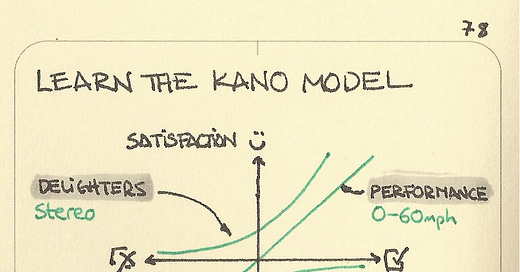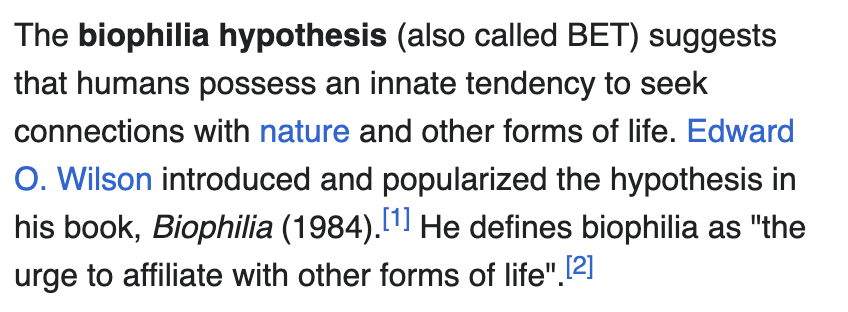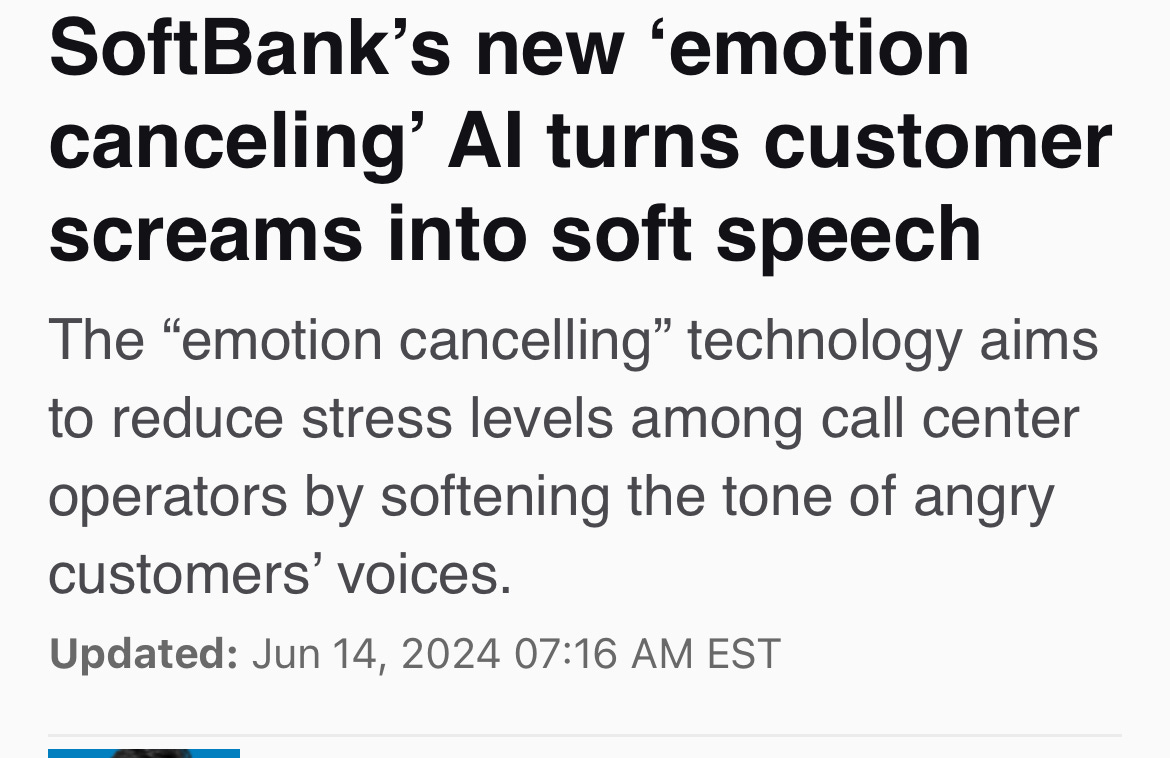Simpler, Better, Faster, Colder: How AI is Changing Customer Experience
The one where I reluctantly wade into the AI argument
I didn’t really want to add to the pile of AI articles, not least for fear of our future overlords being able to look back on what things I said about them.
But in nearly every talk I’ve given in the time since my book came out (have I mentioned I’ve written a book?), the first question I’ve been asked has been a slightly pointed ‘so, what’s the role of AI in creating a human customer experience then, huh?’
Rather than keep fumbling an on-the-spot answer, I thought I’d write down what I really thought, in the hope of working out what I really thought. And so, here are the three ways I think AI will change the way organisations create customer experiences in the future:
A Rising Tide
The Moments that Matter
Augment, Not Replace
A Rising Tide
When chatbots first arrived on our screens, there was huge excitement amongst customers and companies alike. For customers, it meant quick answers on the go, no calls, no popping into stores. For companies, it was a huge cost saver, automated answers to frequently asked questions, a way to reduce the more expensive parts of the process.
And then, it turned out it was completely rubbish.
Yet despite it being rubbish with remarkable consistency, many organisations have persevered, deploying these chatbots as gatekeepers, designed to grind down customers’ will in the hope that they’ll just give up and go away.
This is where I’m genuinely excited to see AI rip up what’s gone before. No more chatbots, so long FAQs, goodbye to customer communities that give you a version of an answer from the unpaid and unemployed ScartmanMike1962 rather than letting you actually speak to someone.
AI will transform these painful experiences. And in doing so, make the base level of almost every customer experience significantly better than it is today, just as Google and the iPhone did. Just as long as it doesn’t start making up it’s own rules, hey Air Canada?
The Moments That Matter
In other words, with AI taking care of most low-level, easy to deal with experiences, the ‘minimum threshold’ line of the Kano Model will rise and rise with customer expectations.
But the more complex, more emotional, more important experiences? This is where humans will come to the fore.
In his brilliant article ‘Get Real’, psychologist Paul Bloom references ‘The Biophilia Hypothesis’. In essence, this states that as humans, we have an innate human need to be heard by another living thing. This is especially true when something’s gone wrong, and we have that 30-second script rehearsed in our head ready to say as soon as someone picks up the phone.
He goes on to suggest the three things we can only get through interactions with real people:
Relationships that are chosen, not that merely appear to be chosen
Relationships with beings who care about us, not that merely seem to care about us.
Relationships that react to us, to affect other individuals, impressing, engaging, making them laugh, not merely have something give the illusion of being impressed, engaged, and amused.
These things may not matter in most experiences, but in the few, most important ones, they matter a huge amount.
Automated delivery of McDonalds food? I could go for that. But the same in a Michelin-starred restaurant for a special celebration? No chance.
Checking my water bill? Fine to use AI. But dealing with a water leak, an emergency in my home? I want a real person, ready to react.
And for the biggest moments in life? Ok, I might accept an AI-generated Will, tailored made to my circumstances. But when there’s a death in the family, and I need make arrangements? Then, only a human will do.
Augment, Not Replace
This means, of course, that whilst organisations are busy investing in AI, they need to be busy investing in their people, too. Because as AI takes away the low-level experiences, humans are going to be left dealing with the most complex, most emotional moments - which means they need to be consistently capable.
Partly, this is where good investment in training and recruitment comes in. But also, AI can play a large role in filling this gap - particularly for those with less experience.
A study published in April 2023 showed that for less experienced and lower skilled colleagues, using AI improved their performance by 14%. But for those more experienced and skilled, it made no difference at all.
In essence, this means that AI can distill the knowledge of the top performers to help newer people get up to speed more quickly. Add to this easier ways to search for information, natural sounding scripts and real-time suggested responses, and suddenly we have supercharged customer experience representatives, ready to handle the most complex queries.
Of course, what AI can’t help colleagues with is showing real, human empathy. It can suggest the words or phrases to use, but not control how a colleague feels. And it certainly shouldn’t be used to hide customers’ emotions.
(As horrible as being shouted at down the phone is, I think having horrible words said in a soft, creepy voice is surely even worse?)
Ultimately, how the colleague really feels about the customer is what will come through - whether they really care, really want to take ownership, really want to make the customer’s day.
AI for the simple stuff, AI + Humans for the complex, most emotional stuff.
And that, it turns out, is what I think about that. What do you think?







